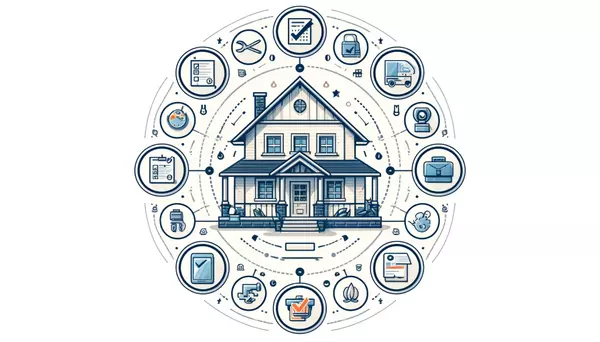
Home Seller Negotiation Secrets
Selling a home is a significant step, and negotiations are a crucial part of ensuring you get the best possible deal. As both a buyer and a seller have opportunities to influence the final agreement, it’s essential to be well-prepared and strategic. Here are some essential tips to ensure a win-win outcome for everyone involved. 1. Be 100% Organized and Qualified Being well-prepared is key to successful negotiations. Here’s how you can ensure you have a strong position: Set the Right Home Price: Work with your realto to base your list price on current comparables. This ensures your home is competitively priced and attractive to buyers. Prepare Your Home: Ensure your home is ready to show. This can include decluttering, staging, and even holding open houses. Whether virtual or in-person, these open houses can create a sense of competition among buyers. Know Your Responsibilities: Understanding your obligations as a seller helps avoid any last-minute surprises. Make sure you know what you need to provide and prepare for each step of the selling process. Have Terms in Mind: Decide on the terms you are willing to negotiate. This can include the closing date, what stays with the house, and any contingencies. Use Counteroffers Effectively: Counteroffers with expiration dates can create urgency and prompt buyers to act quickly. Discuss with your realtor the best strategies for using counteroffers and concessions. Personal Tip: I always advise my clients to keep a checklist of tasks and documents. It not only keeps you organized but also gives you peace of mind knowing everything is in order. 2. The Questions to Ask Asking the right questions can give you a strategic advantage in negotiations. Here are some questions to consider: Who are you negotiating with? Understand the financial position of the buyer. Are they pre-approved for a mortgage? Do they have contingencies that might affect the sale? What strategic concessions are you willing to make? Decide beforehand what you’re willing to compromise on. This could be price adjustments, including certain appliances, or offering to pay for some closing costs. What comps are you up against? Know the competition in your area. Understanding what similar homes are selling for can help you position your home effectively. What do you have to negotiate with? Identify your strengths in the negotiation. This could be a desirable location, recent renovations, or unique features of your home. What are your non-negotiables? Determine the points you are not willing to compromise on. This clarity helps you stay firm on crucial aspects of the deal. Personal Tip: Every negotiation is unique, but having a clear understanding of these questions helps you navigate the process more confidently. 3. What’s Up for Negotiation? In home sales, it’s not just the price that’s negotiable. Many factors can be part of the negotiation process: Price: The most obvious point of negotiation. Be prepared to discuss and adjust your asking price based on market conditions and buyer feedback. Contingencies: Conditions that must be met for the sale to proceed, such as home inspections, appraisals, and financing. Terms: Specific details of the sale agreement, including the closing date, possession date, and any seller concessions. Occupancy: The date when the buyer can move in. Sometimes, buyers may need immediate occupancy, which could be a point of negotiation. Furniture: Items that may be included in the sale, such as appliances, light fixtures, or custom window treatments. Repairs: Any essential repairs identified during an inspection. Decide in advance how you will handle requests for repairs. Equipment or Tools: Items such as appliances, garden tools, or even maintenance equipment. Closing Costs and Fees: Costs associated with finalizing the sale. Be ready to negotiate who will cover these expenses. Personal Tip: Flexibility can be your best asset. Understanding that both sides need to feel they are getting a fair deal can help facilitate smoother negotiations. Negotiation Tips Here are some basic tips to navigate negotiations successfully: Know How to Receive an Offer: Understand your options when an offer comes in. Review the terms carefully and discuss them with your REALTOR®. Set a Bottom Line Price: Determine the minimum price you’ll accept. This helps you stay focused during negotiations and avoid accepting less than what’s reasonable. Remember That Price Isn’t Everything: Consider other factors like terms and contingencies that could add value to the deal. Set Intentions and Goals: Be clear about what you want to achieve. Setting goals helps guide your decisions and keeps you on track. Understand Contingency Clauses: Know the conditions that could affect the sale. This understanding helps you manage expectations and avoid surprises. Collaborate with a Qualified Agent: Work with a REALTOR® who can guide you through the process. Their expertise and experience are invaluable in achieving a successful outcome. My take: Communication is key. Keep an open line of communication with your realtor and be transparent about your goals and concerns. Ready to Connect? I'm here to help you navigate negotiations for optimal results in your home sale! Reach out to me, Elizabeth Steele, at MVP Realty, and we'll get started right away. Elizabeth Steele PAProfessional Real Estate ConsultantMVP Realtyrealestateservicenow.comEmail: esteelerealestate@gmail.comPhone: 239-370-5988

6 Essential Things to Check Before Buying a Home
Buying a home is one of the most significant investments you'll make, so it's crucial to ensure you're making a sound decision. Prevent unexpected costs and headaches by thoroughly checking these six essential aspects before finalizing your purchase. 1. Date of Electrical Updates Old or faulty wiring can cause major safety concerns and expensive repairs. Here’s what to check: Proof of Updates: Ask to see documentation for any electrical updates. This can help verify that the electrical system is up to code. Electrical Panel: Inspect the panel for quality workmanship. Look for signs of tampering or poor installation. Outlet Testing: Bring a small device like a phone charger to test all outlets in the home. Ensure they are functioning properly and that there are enough outlets for your needs. 2. Date of Plumbing Updates Plumbing issues can lead to costly repairs and damage. Make sure to: Inspect Fixtures: Check all faucets, toilets, and showers for proper operation and any signs of leaks or corrosion. Appliance Testing: Test appliances that utilize plumbing, like dishwashers and laundry machines, to ensure they work correctly. Look for Leaks: Check under sinks and around toilets for signs of leaks, mold, or water damage. Even small leaks can lead to significant issues over time. 3. Date of Major Appliance Upgrades Non-functional appliances can be a financial burden. Ensure you: Check Upgrades: Ask about the dates of any major appliance upgrades. Newer appliances are often more energy-efficient and reliable. Test Appliances: Test the fridge, oven, microwave, dishwasher, washer, and dryer. Verify they are in good working condition and meet your needs. 4. Any Reported Foundation Issues Foundation problems can significantly impact the structural integrity of a home. Be on the lookout for: Sagging Floors/Ceilings: Signs of foundational problems that could indicate significant underlying issues. Bowed Walls: These can suggest serious structural problems that may be costly to repair. Musty Smells: Could be a sign of basement moisture problems, which can lead to mold and structural damage. 5. Age of the Roof The condition of the roof is critical for the overall health of the home. Consider: Roof Age: Roofs older than 25 years may need replacement soon, especially if they haven't been well-maintained. Shingle Condition: Look for cracked, buckling, or damaged shingles. These are signs that the roof may need repairs or replacement. Gutter Debris: Check for shingle granules or broken pieces. Excessive granules in gutters can indicate the roof is deteriorating. Signs of Rot: A sagging roof or growth of moss, mold, or fungi indicates potential problems that could lead to leaks and further damage. 6. Age of Windows/Any Window Updates Windows should be both functional and energy-efficient. Don’t forget to: Check Updates: Ask about the age of windows and any updates made. Newer windows can significantly improve energy efficiency. Test Functionality: Open and close all windows, doors, and shutters to check for drafts and ensure proper operation. Poorly sealed windows can lead to higher heating and cooling costs. A new home is a big purchase, and it's important to feel confident about your investment. By following these tips, you can avoid unexpected costs and ensure your new home meets your expectations. If you have any questions or need further advice, don't hesitate to contact me. I'm always here to help! Elizabeth Steele PAProfessional Real Estate ConsultantMVP Realtyrealestateservicenow.comEmail: esteelerealestate@gmail.comPhone: 239-370-5988
Recent Posts











